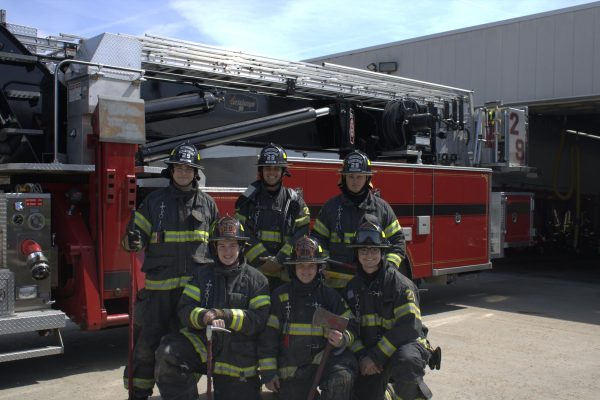Union Latinx hosts talk on immigration
Tanya Cabrera, associate director for equity and inclusion at the University of Illinois at Chicago and chair of the Illinois Dream Fund, spoke in the Henderson Campus Center on Friday, Oct. 21. Union Latinx sponsored Cabrera’s talk as part of Hispanic Heritage Month. In her talk she discussed the many difficulties that Latino communities face, such as mental health issues, their societal status and how society perceives their contribution to the economy. Her main focus however, was about her work with undocumented students.
According to the University of Texas at Austin’s International web page, “typically, undocumented immigrants have entered the U.S. without inspection or legal permission or through the use of false papers. Being undocumented can also refer to a person with expired paperwork or a person in deportation proceedings. Undocumented students are often brought to the U.S. by their parents at very young ages, have completed most of their schooling in this country, and find out about their lack of legal status when they are in high school. Not having a social security number is one potential sign of being undocumented.”
Cabrera put a personal twist on her talk and made the effort to walk around the room and personally introduce herself to everyone in attendance, shaking their hand and asking them where they were from.
During her talk, Cabrera emphasized the role her father played in her life. His work as an activist influenced her career, and although he died when she was 10 years old, he left her with a motto that she has continued to live her life by.
“We are all on borrowed time. What we do with our time here impacts generations,” said Cabrera. “What I do has an impact on the next generation. I wanna leave the world a better place than when I saw it.”
Cabrera said that one of the biggest issues she faces in her work with immigration, is holding people accountable.
“It is important to know your worth, not give up on your values and knowing your seat at the table so you can be the voice for anyone that is not there,” said Cabrera. “I think that we have to hold people accountable for what they do. If I mess up, I expect people to hold me accountable, and I also hold other people accountable.”
In her talk, Cabrera said that a lot of talk is about comprehensive immigration reform, but she believes what is really important is amnesty and a pathway to citizenship.
“We need to be a driving force in saying that this is a community that exists and is not going anywhere,” Cabrera said. “We have to stop separating families.”
Carina Saltivar, ’19, is from Santa Ana, California and is the historian of Union Latinx. She said she learned a lot from the talk about additional repercussions that come with immigration problems.
“If you [are classified as] an international student … actually later on that becomes a problem, when you’re looking for a job,” Saltivar said.
One of the major points that Maria Pineda, ’18, found surprising was how Allegheny—along with many other colleges—labels their undocumented students as international even though they have lived in America most of their lives, according to Cabrera.
Pineda is currently serving as vice president of Union Latinx, and is an undocumented student raised in California. She was born in Mexico, so she is categorized as an international student at Allegheny. She said that being an undocumented student, and learning that she is classified as an international student, is a constant weight on her mind, particularly because being classified as an international student has the potential to affect her ability to get a job after graduation.
“I learned that at Allegheny College, we label students international when they’ve lived in the states most of their life, so that turns into an issue later in their lives, about eventually pursuing citizenship,” Pineda said.
Pineda is a student from the Nicholas Academic Center in Santa Ana, California. According to its website, the Nicholas Academic Center is an after-school tutoring program that was created to help underserved high school students reach their academic and social potential. This program focuses on building life skills for students and prepares them for college. Rosa Diaz, ’04, director for the Nicholas Academic Center, and Jack Mandel, ’58, chairman of the board, are both alumni of Allegheny College.
Although not part of the Nicholas Academic Center, Cabrera’s work focuses on trying to get undocumented students into college. She said that it is important for people to never settle or change their values. She emphasized the importance of persistence but also the need to keep an open mind.
“You have (sic) to pay attention to know both sides of the story. Even though I am for immigration, I also have to understand what the Republican party is talking about [and what they are saying about immigration reform] … and understand why they are talking this way, or why they feel this way,” Cabrera said. “I don’t have to agree with them, but again, if you’re not angry you’re not paying attention.”






